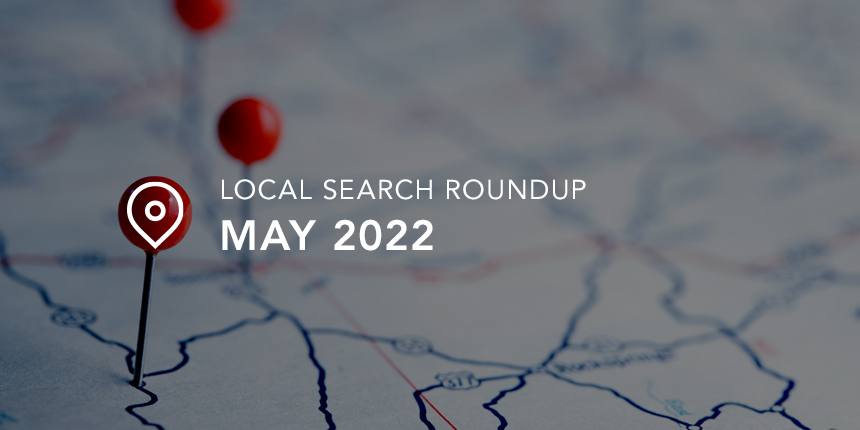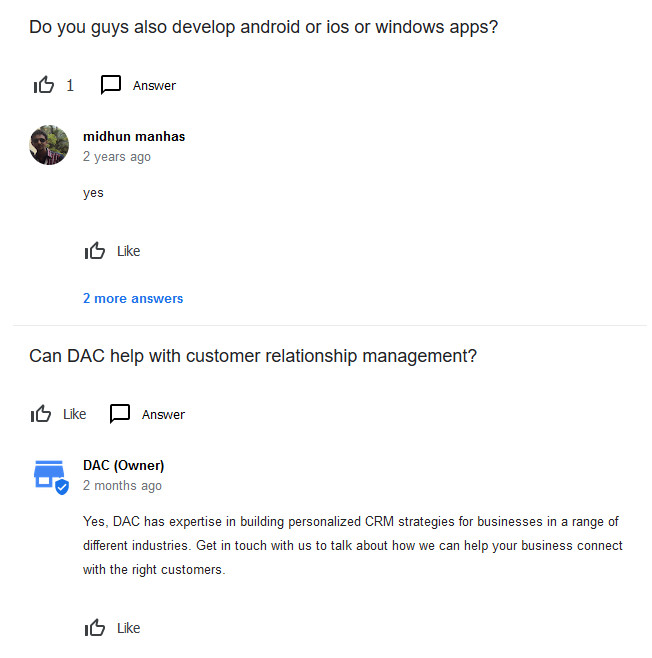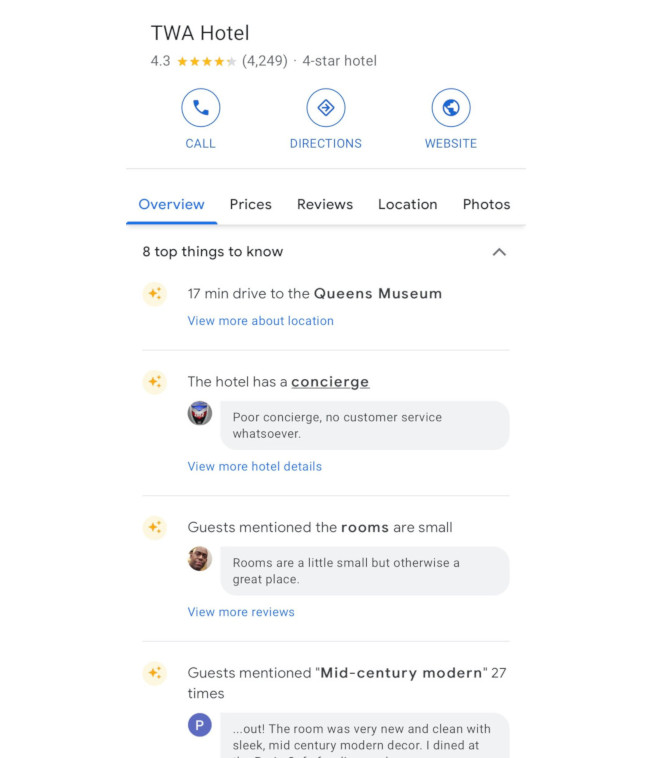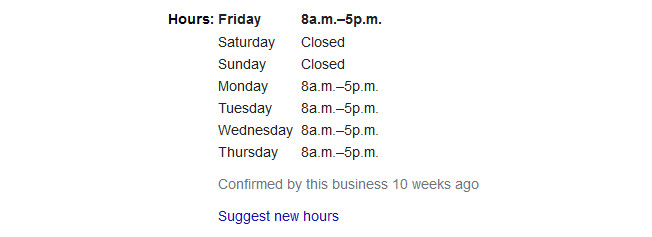May saw the arrival of many updates in local search. Some are major, others are minor, and at least one of them is set to demonstrate the extraordinary value of user reviews. Here’s all the news you need to know, including:
- Google makes “virtual kitchens” eligible for Google Business Profiles
- Google Maps prompts users to answer Q&A and asks Local Guides to update old reviews
- New Google Travel search features are launched, like flight price tracking
Google makes “virtual kitchens” eligible for Google Business Profiles
The prominence of food delivery services has prompted a new type of business known as “virtual kitchens” or “ghost kitchens”, which offer food delivery but do not have a dine-in options or often even a visible storefront. Google was not clear on guidelines for these types of businesses in the past but, according to new local business profile guidelines, virtual kitchens now have clarity for their own Google Business Profiles (GBPs).
Despite lacking signage and often sharing their cooking space with other businesses, virtual kitchens have the same listing needs as other service area businesses. With the exact address often unimportant unless pick-up is also offered, Google has provided unique guidelines for these businesses.
Co-located food brands offering pick-up 🥡
-
- Food brands that are co-located must each have permanent separate signage. They should display their address only if they offer pick-up to all customers.
- Delivery-only brands (no pick-up option) out of shared kitchens must hide their address and add service areas to that specific brand to avoid confusing their customers.
Delivery-only food brands 🛵
-
- Delivery-only brands (i.e. those operating out of virtual kitchens) are permitted if they have distinct branded packaging and a distinct website.
- Multiple virtual brands operating out of one location are permitted, but are subject to additional verification steps.
- Delivery-only brands must add their service areas and hide the address on their business profile to avoid confusing their customers.
- If there is a partnership where a food brand has authorised the virtual kitchen as a verified provider of the food, the virtual kitchen may manage each authorised brand’s business profile once the authorisation is confirmed.
- The facility that houses the delivery-only brands (e.g. DoorDash Kitchens) is permitted to have its own separate business profile. Only someone affiliated with the facility can claim and verify this profile.
With virtual kitchens certainly not an online-only business and their physical proximity relevant to their client base, online listings are critical so that customers can find them on Google. Competing not only with other virtual kitchens but with traditional restaurants as well, every food delivery service should seek to establish and maintain a presence on Google Maps.
Google Maps prompts users to answer Q&A and asks Local Guides to update old reviews
Many businesses are realising that Google reviews are invaluable to their local listings, but fewer have been proactive about managing their Q&A content. In short, GBP managers need to keep up because businesses that fail to respond to their Q&A or manage their reviews look less professional and may even see their rankings suffer.
The best approach to Q&A is to not only answer real customer questions but populate your own FAQ by asking and answering your own questions. Even if you’ve already done the latter, be advised that “set and forget” is not enough: Spam is prevalent on Google Q&A, and bad actors can even upvote their spam to appear directly on a business’s knowledge panel.
To stop the spread of Q&A misuse, Google is giving it a more prominent position on Maps. Now when a user looks through a business profile, there will be a designated “Others are asking” section prompting users to respond. With this new billboarding, business owners will not only have to take better care of their own Q&A but actively prevent bad actors from amplifying their spam among potential customers.
In addition to promoting Q&A, Google has also been asking Local Guides to update their older reviews. It is common knowledge that most customers do not consider reviews over three months old relevant. To this end, users who left a review in the past but have visited a business since then will be asked for an updated review. This presents an opportunity: If you responded positively to these older reviews (especially negative ones), you may well see Local Guides amend their older reviews to be more favorable.
Businesses need to manage every aspect of their Google listings. Even if a particular feature seems unimportant, Google’s continued use of it is reason enough to utilise it. After all, reviews on Google meant little a decade ago but are now critically important. Likewise, Google seems likely to continue pushing Q&A content. That alone should be motivation enough to get serious about yours.
Google Maps’ business redressal form adds “This business doesn’t exist” option
Spam is an ever-prevalent threat to the health of online listings and for businesses such as locksmiths and insurance agents, the threat can be far greater than within other industries. Google has added yet another tool that these businesses can use to help alleviate the constant flood of spam that keeps pushing their legitimate listings lower within Google’s rankings. Google now offers a new “this business does not exist” option when reporting businesses for violating Google’s terms of service.
Most spam listings certainly do not exist and are there either to steal customer information or to steal leads and then sell it back to the legitimate business. In this sense, a Google user stating that a business does not exist as advertised is easier to flag to Google than a legitimate business owner trying to claim and then prove that an online listing is violating any specific Google policy. This update to simply claim a listing non-existent will hopefully allow greater amounts of listing spam to be removed faster, letting genuine businesses compete for the top rankings on Google instead.
New Google Travel search features
During the travel industry’s downturn in 2020, Google prepared its own host of travel search features. Google Travel offers search features across flights, hotels, destination of interest, and more. New features launched this past month will help Google further optimise in this space against competitors such as Trip Advisor.
Per Google: “These new features aim at helping users get inspired and research their options so they can book with ease when the time is right.” New features include:
- Track flight prices for any dates
- Google Maps interest layers (dining, shopping, sightseeing, etc.)
- Explore nearby
- New hotel/rental button in hotel search
In addition, Google is now using hotel reviews to show quick summaries and generate lists of things to do. Google Hotel results are showing a section named “Top things to know”, curated via reviews left in the hotel listings. These aggregated reviews tell searchers what they can do in the area or at the hotel.
With the data used for these features pulled from GBP (as well as other sources), hotels and tourist attractions should ensure they have all features of their Google listings fully optimised. When travelers are looking for local dessert venues, for example, any business that offers desserts but does not list the secondary category of “dessert restaurant” could miss out on new leads generated by Google Travel’s new features. Whether your business is heavily invested in the travel industry or sees it as just one customer touch point of many, your listings should nevertheless take advantage of all updates Google Travel rolls out.
GBP updated via phone calls from Google Duplex
Google’s AI, Duplex, has been calling business locations to confirm hours of operation. When hours are updated in this manner, the listings are appended with a note stating “Confirmed by phone call X weeks ago”:
Every business with GBP listings should be aware of these calls. If for any reason inaccurate hours are confirmed, bad data will go live immediately. Reverting that data requires manual intervention. Automated calls from Duplex can be toggled off for each listing, but enterprise-level businesses may find it easier to ensure those answering the calls have accurate information to hand.
It’s not always easy to keep up with every last update, feature, and best practice in local search. Shall we take care of it all for you—and drive transformational growth in the process? Let’s talk!







